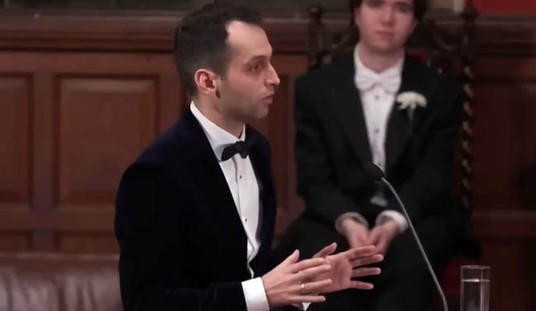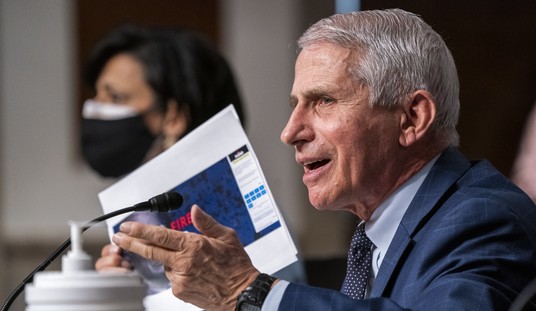The more Barack Obama learns about George W. Bush, the more he seems to like his predecessor. In yet another reversal from his campaign rhetoric and another broken promise to the Left, the Obama administration has adopted a Bush administration plan to use the NSA to secure private computer networks. The decision contradicts Obama’s earlier position that he would not allow the NSA to have access to private communications networks:
The Obama administration will proceed with a Bush-era plan to use National Security Agency assistance in screening government computer traffic on private-sector networks, with AT&T as the likely test site, according to three current and former government officials.
President Obama said in May that government efforts to protect computer systems from attack would not involve “monitoring private-sector networks or Internet traffic,” and Department of Homeland Security officials say the new program will scrutinize only data going to or from government systems.
That was then. This is now:
But the program has provoked debate within DHS, the officials said, because of uncertainty about whether private data can be shielded from unauthorized scrutiny, how much of a role NSA should play and whether the agency’s involvement in warrantless wiretapping during George W. Bush’s presidency would draw controversy. Each time a private citizen visited a “dot-gov” Web site or sent an e-mail to a civilian government employee, that action would be screened for potential harm to the network.
“We absolutely intend to use the technical resources, the substantial ones, that NSA has. But . . . they will be guided, led and in a sense directed by the people we have at the Department of Homeland Security,” the department’s secretary, Janet Napolitano, told reporters in a discussion about cybersecurity efforts.
Under a classified pilot program approved during the Bush administration, NSA data and hardware would be used to protect the networks of some civilian government agencies. Part of an initiative known as Einstein 3, the plan called for telecommunications companies to route the Internet traffic of civilian agencies through a monitoring box that would search for and block computer codes designed to penetrate or otherwise compromise networks.
No matter how the White House tries to cut it rhetorically, the NSA will have to look at traffic from private networks to protect public ones. This is so obviously true that it defies common sense to think otherwise. You are likely accessing Hot Air through a private network, such as Comcast, Verizon, Cox, or a workplace-based network with a connection directly to the Internet. (We won’t rat you out if it’s the latter — trust us.) If you move from Hot Air to, say, the Bureau of Labor Statistics, then the traffic to that server passes through both private and public networks. The only way the NSA won’t access private-network traffic would be if they only looked at accesses from within the federal network, which would be pointless in preventing hack attacks on government servers.
In a sense, this is no different than George Bush’s Terrorist Surveillance Program at the NSA — only Bush’s TSP required some reasonable cause for surveillance. TSP intended to prevent terrorist attacks by surveilling communication traffic from or to people outside the US, prompted by discoveries of suspected terrorist communication points. The NSA in this program checks communications entirely within the US, as well as coming from outside, in order to find potential attacks on our infrastructure. AT&T will route any communications to any government website through NSA for surveillance during the Einstein 3 test phase, for instance, regardless of probable cause, and the rest of the carriers would follow suit once Einstein 3 passes its initial tests.
Like the TSP, I don’t see this as a big problem, except for occasional latency issues when unemployment reports get released. We have an interest in protecting our public systems from attack, and the privacy issues are minimal — just as with Bush’s TSP. But it represents a major shift from the campaign, and even from last May, for Obama, who appears to like the power against which he railed for more than two years as a candidate.









Join the conversation as a VIP Member